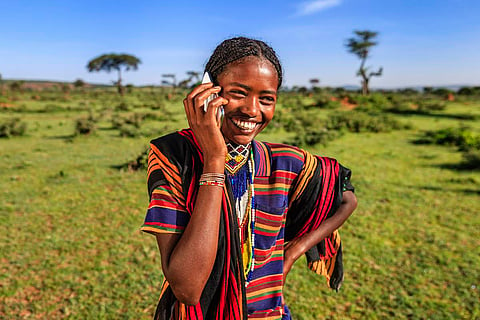Kenya’s digital divide: pastoralists are key to the country’s economy, but they’re being left behind
Information and communication technologies (ICTs) hold great potential to expand African economies. They include mobile banking platforms, internet-enabled communication devices and e-government services. All of these can enhance financial inclusion and improve services for citizens.
Kenya’s mobile money transfer platform, M-Pesa, for instance, has given millions of people access to banking services. And Rwanda’s e-government platform has streamlined public service delivery for its citizens.
Mobile phones have given more people access to the internet. There were 63.94 million active cellular mobile connections in Kenya at the start of 2023, against a population of 50 million.
But the digital divide continues to grow in many parts of Africa. In Kenya, men are more likely than women to use the internet and some communities are more left out than others.
Kenya’s pastoralist (herder) communities contribute significantly to the economy. The pastoral sector is valued at US$1.13 billion. It provides more than 80% of the meat consumed in the country. Yet these communities are often left out when it comes to access to digital technologies.
Government policies on digital inclusion and infrastructure development often overlook pastoralists’ need for reliable internet access, electricity and education. Scholarly research also tends to neglect the specific challenges and requirements of these communities.
My research spans digital media, digital cultures, social justice issues, and the intersection of media and politics. In a recent study among herder communities in four Kenyan counties, I wanted to learn more about the main barriers to their digital inclusion. The study involved interviews with individuals in Marsabit, Garissa, Mandera and Isiolo counties.
The firsthand accounts they shared help to illustrate the real-world impact of being left out of technological progress. Poor infrastructure, literacy levels and bureaucratic hurdles prevent these communities from enjoying the benefits of digital advancements.
These and other factors limit access to markets, better education opportunities and healthcare. The interviews underscore the need for targeted policies and investments to make sure rural communities aren’t left behind in Kenya’s digital transformation.
Digital barriers
Africa is home to about 250 million pastoralists, including 9.5 million in Kenya. ICT adoption among these communities is growing but there’s still a digital divide.
My Kenyan study, carried out in 2023, aimed to document the barriers. The interview questions were open-ended to gather in-depth and detailed insights. These questions teased out responses on infrastructure challenges, educational barriers, government support and bureaucratic obstacles. The responses highlighted:
Government neglect: Government isn’t investing enough in building cellphone signal towers, providing affordable internet access and establishing digital literacy programmes. Government neglect also extends to essential services like schools and healthcare facilities. These are critical for community development and digital inclusion.
Bureaucratic hurdles: Obtaining documents, such as identity cards and birth certificates, is more difficult for pastoralist communities. It’s harder for them to get to government offices. These documents are required to register for online services, apply for government benefits or participate in digital platforms.
Digital inequality in Kenya’s pastoralist communities is rooted in longstanding socio-political and economic disparities. People in the mainly pastoralist counties face poverty, insecurity, poor infrastructure and government neglect. Interview respondents in my study said they needed more inclusive technology policies.
This article is republished from The Conversation under a Creative Commons license. Read the original article.

